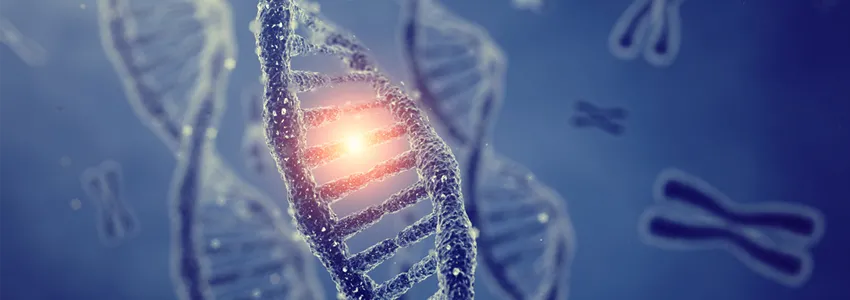
Photo by nobeastsofierce, Shutterstock.
Stanford Medicine Scope - January 24th, 2017 - by Krista Conger
New parents often spend an embarrassingly large amount of time staring at their baby’s face in an attempt to pick out likenesses. Does she have her father’s eyes? Her mother’s smile? Often the features represent a nice blend rather than the exclusive influence of just one parent.
Now new research by genome scientist Howard Chang, MD, PhD, along with postdoctoral scholar Jin Xu, PhD, and graduate student Ava Carter, has uncovered a new genetic phenomenon that ensures that, at least for some genes, one parent’s influence dominates. Although the favored parent appears to be selected randomly, the choice, once made, lasts for generations of cells and could have important implications for the study of disease. Their work was published yesterday in Nature Genetics.
As Chang explained to me:
In humans, we have two copies of nearly every gene. One copy from mom and one from dad. It’s generally assumed that for any situation, both are turned on and off at same time. The idea of possibly turning one only one copy, and not the other, is very interesting. This would mean that the genetic influence from only one parent would predominate in those cells and their progeny.
The researchers used a variation on a technique previously developed in the Chang lab in collaboration with Stanford geneticist and current study co-author William Greenleaf, PhD, called ATAC-seq. This technique identifies regions of chromosomes that are open for the business of gene expression. (Normally most DNA is so tightly wound that most genes are inaccessible.) ATAC-seq highlights those regions that are active throughout the genome at any given time. (You can read more about the technique in this excellent blog post by my colleague Jennie Dusheck.)
The researchers studied embryonic stem cells as well as neural progenitor cells from laboratory mice. As Chang also explained:
Our study identified a new phenomena that we called RAMA, for Random Monoallelic Accessible elements. Genes with these DNA elements near their promoters are controlled in an allele-specific manner that is passed down through generations of cells. These results suggest that, in the brain, there are cells and perhaps entire neural circuits that are running with genetic information inherited entirely from mom or from dad.
The finding is important because it could mean that one parent has a much greater influence over certain brain circuits than the other parent. This has implications not just for the function of these networks, but also for any potential dysfunction. If a child expresses genetic information from just one parent, they also inherit any increased risk for developmental disorders. In fact, the researchers found that RAMA-associated genes are enriched for genes known to be associated with these conditions.



